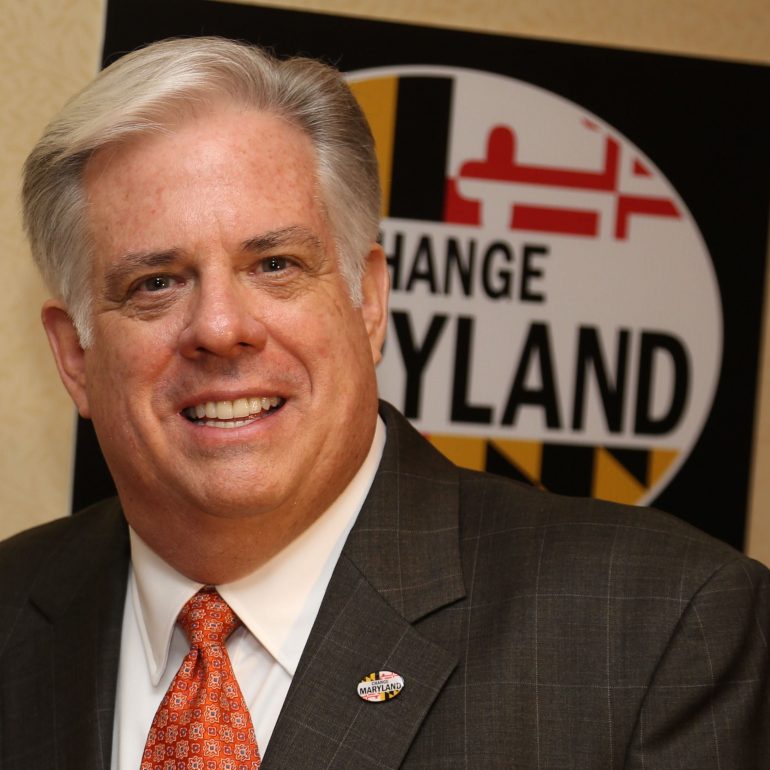ANNAPOLIS — Republican Gov. Larry Hogan introduced a budget supplement Thursday calling for $44.8 million in tax relief, education spending, substance abuse treatment and police hires, among other items.
The proposal caused quite a stir when it was delivered to state legislators, who will adjourn for the year at midnight on April 13.
“I think it looks great,” said Delegate Kathy Szeliga, R-Baltimore County and Harford, the House minority whip. “The governor is funding some of his priorities.”
But some Democrats were as concerned about measures absent from the supplement as they were about the items it sought to fund.
Hogan’s initial fiscal 2016 budget, which has passed in the House of Delegates and the Senate, planned to reverse a recent 2 percent raise for state employees; the latest proposal does not attempt to preserve the higher salaries.
Another notable absentee — the Geographic Cost of Education Index — has some public education advocates worried. Senate President Thomas V. “Mike” Miller Jr., D-Prince George’s, Charles and Calvert, said after Thursday’s floor session that he hadn’t yet read the supplement closely, but that “the worst thing (Hogan) could do is to cut education funding.”
Some public education advocates said Hogan is using the index, a supplemental funding source for state public schools, as a bargaining chip to pressure the Democratic-controlled General Assembly to support his legislative initiatives. Hogan’s initial budget cut the index in half, from about $133 million in fiscal 2015 to about $68 million. Legislators earmarked funds to replenish the index, but Hogan has not yet approved the restoration.
“After the hard work of the General Assembly to restore more than 90 percent of his cuts, he has decided to hold hostage nearly $70 million in public school funding in exchange for his agenda,” Maryland State Education Association President Betty Weller said of Hogan in a statement.
The Maryland State Education Association, which advocates for the interests of public schools, also criticized a provision in the supplemental budget that would allocate $5 million for organizations that provide financial aid to private-school students. Delegate and House Appropriations Committee member Carol Krimm, D-Frederick, agreed.
“Our obligation under the Constitution is to fund public education, so I think that really has to be scrutinized,” she said.
Hogan said in a statement that the $5 million would help low-income students.
He accounted for three tax-relief measures in the supplement — one for small-business owners; one for military retirees; and one for fire, rescue and emergency personnel and volunteers. Bills associated with the first two initiatives have passed unanimously in the Senate, but the third has not emerged successfully from committee.
The supplement also allocates millions of dollars to bolster public health and law enforcement. Among other provisions, the Maryland Department of Health and Mental Hygiene would receive $2 million for treating heroin addicts, part of Hogan’s plan to combat what he has called an “epidemic” of heroin use in the state. State Police would get about $8.2 million to reopen a barrack in Annapolis and train 100 new troopers.
“I’m pleased with the increase in state troopers; I’m delighted that’s there’s going to be more money for private education; the tax deductions are a good idea,” said Delegate Barrie Ciliberti, R-Carroll and Frederick, who is on the Appropriations Committee. “The governor is firm in his commitment to lower taxes, to help businesses.”
The supplement also set aside $4.5 million for capital projects at Sinai Hospital of Baltimore, Doctors Community Hospital in Prince George’s County and a new facility for the study of drones and other unmanned vehicles at Southern Maryland Regional Higher Education Center in St. Mary’s County.
Now it’s up to the senators and delegates to respond to Hogan’s latest proposal, which will add to the already-passed budget. Ciliberti said Hogan, Miller and House Speaker Michael E. Busch will have to resolve the disagreements.
“We have to wait and see,” Ciliberti said. “This will go to conference committee, there will be more supplemental budgets, there will be more yelling and screaming, and the final analysis is going to be done among the powers that be — the governor, the speaker, the president.”
–Capital News Service correspondents Grace Toohey and Deidre McPhillips contributed to this report.

